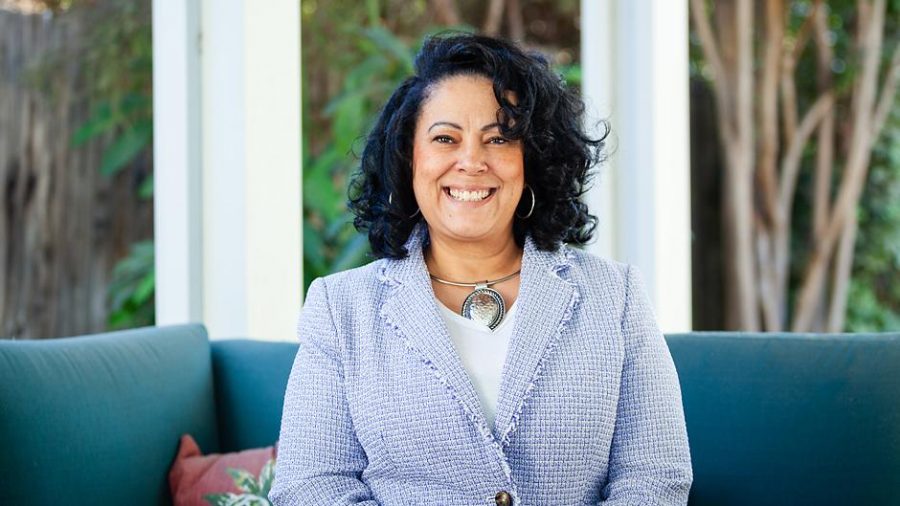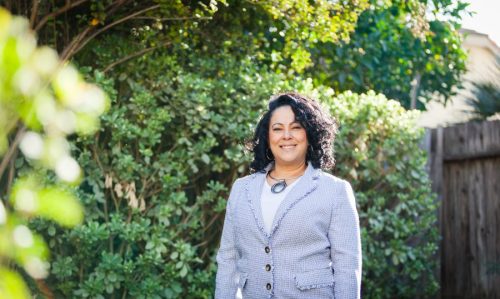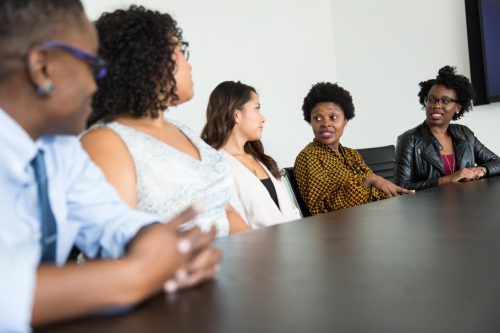Melanie Dixon connects with students and faculty to target barriers to education
Dixon focuses on beginning the healing process during COVID-19 pandemic
Melanie Dixon felt called to be the new American River College president because of the COVID-19 pandemic. (Photo via the ARC website)
In the best of times starting a new job, particularly a leadership position, can be daunting. But for the new American River College President Melanie Dixon, the difficult times are exactly why she felt called for this job.
“We need a time of healing —to slow down before you speed up. There’s a process of leaning in and listening,” Dixon says.
Dixon started her term as the new ARC president on Jan. 1, after being selected in November. She came to ARC after serving as the dean of student services at Folsom Lake College. Before coming to FLC in 2014, she was the African American student service coordinator at Portland State University.
Dixon calls herself a two-time community college grad—the first time was when she was in a Headstart program at Portland Community College, the second when she was a young adult with a daughter of her own. After getting her Associate’s Degree, she transferred to Portland State University.
Her colleagues at ARC believe her experience is an asset for her new position.
“She brings to the role extensive experience in higher education and has incredible energy and enthusiasm for serving students,” said ARC vice president Jeff Stephenson. “Her combination of experience and a passion for student success makes her an ideal person to lead the college.”
Dixon says connecting to students and faculty is a priority, which is why she said she’s open about her struggles and challenges. As the youngest daughter with two older brothers, she said she grew up shy. She was “independent, yet insecure.” Then, when she entered college, she learned about imposter syndrome, the feeling of being inadequate, even with evidence of success. Many leaders suffer from this feeling of not deserving their roles.
Dixon acknowledges her own struggles with imposter syndrome, as well as how she’s had to cope with it.
“You have to embrace it, lean into it,” Dixon says. “It’s scary, but you have to grow into it and marinade in discomfort to build your confidence.”
Dixon says her confidence has grown significantly from her childhood—she feels at ease with public speaking and communication. Not just verbal communication—she’s fascinated with nonverbal communication. Specifically, she loves playing poker.
“I love watching everyone’s faces…there is a detailed story on every poker player’s face,” Dixon says. “If I didn’t love what I do so much, I’d either be a professional poker player or a comedian.”
Dixon’s strong communication skills served her well in previous student services roles. As the former African American student services coordinator at PSU, Dixon has a history of tackling barriers to education.
“I strive to be clear in my language and intentional in serving. Equity, not just equality,” Dixon says. “I’m proud that the equity work has been underway already at ARC.”
Dixon is working to remove the barriers some students might have to resources and inclusion. For some students, it might be addressing the digital divide that affects certain student groups more than others. In other students, such as the LGBTQ+ students, it’s about honoring their presence.
To target what students need, Dixon is developing a student design team. The students in these paid positions will be working with Dixon directly to develop ARC policies and strategies. Dixon believes this will be crucial to feeling well connected to students.
Being well connected to students, faculty, and administration is part of her targeted approach to working with ARC during this pandemic. Using her technique of “leaning in and listening,” Dixon says she hopes to work through future challenges that the college may face.










